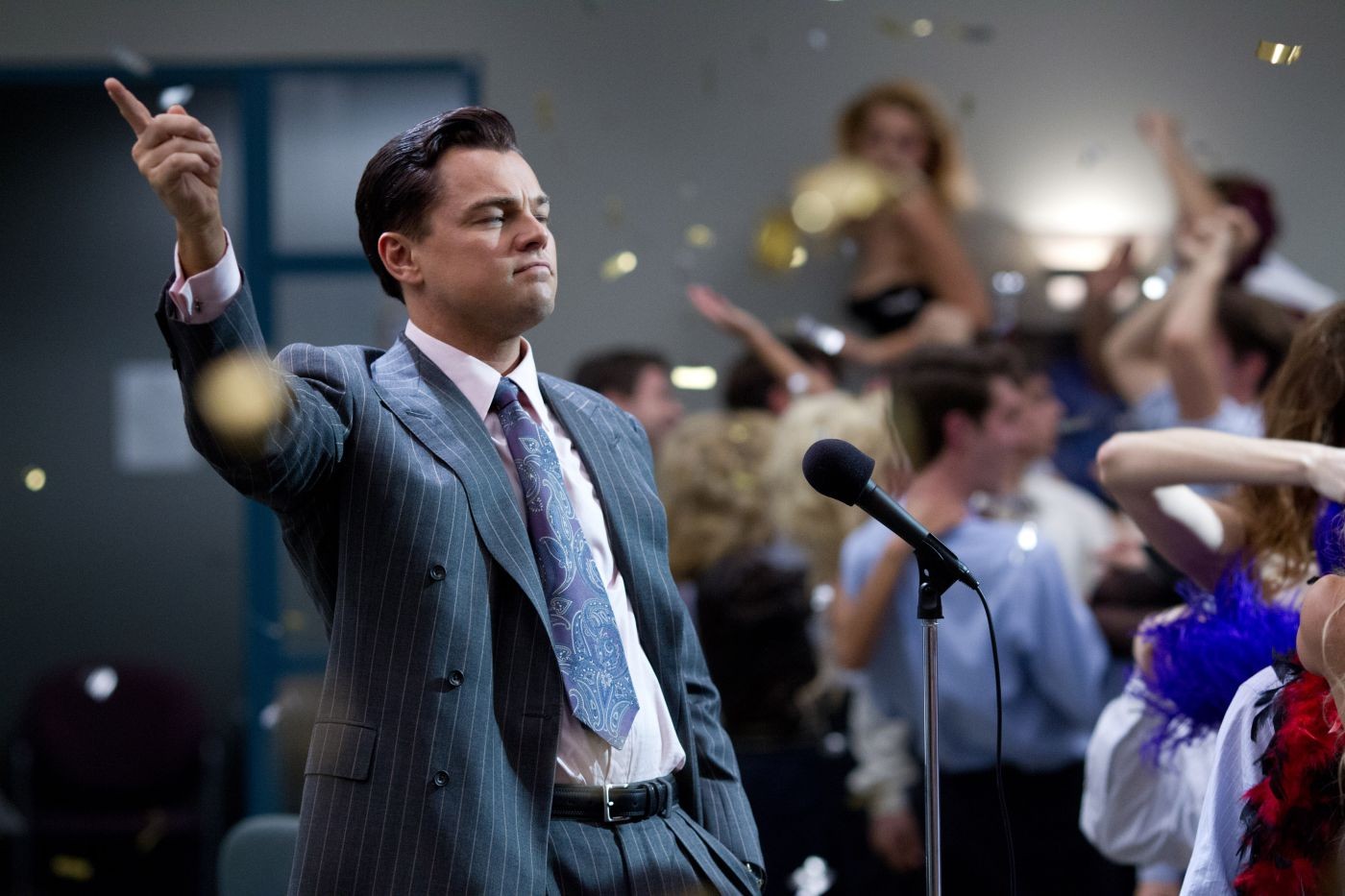Martin Scorsese's The Wolf of Wall Street has been under fire for the last couple of weeks, embroiled in what's essentially the same controversy that last year's Zero Dark Thirty was tangled up in. That's whether or not the directors of these films took a hard enough stance on an inflammatory moral issue, whether it was appropriate for them to document in a non-judgmental fashion the behavior of individuals that we know for a fact took place, and took place right in front of us. In Kathryn Bigelow's case, it was the sanctioned torture practices that government officials engaged in, and here it's the outrageous and frankly obscene partying, misogyny and reckless and illegal practices of scamming people out of their money that stockbroker Jordan Belfort had a hand in on Wall Street in the 90's (and he may have been one of the small-time criminals compared to recent years, as the movie itself points out).
It's not fair to ask artists to be the ones to take a moral stance, to depict and judge the culture in ways that it hasn't been reconciled with by society. We want justice done in our movies because we haven't gotten it in real life, and films like this rub our faces in that fact in a way that makes many uncomfortable. Yes, the behavior of these men was and is infuriating, and the fact that they escape virtually unscathed even more so. But then we have to ask ourselves why then, if this kind of behavior is so universally reviled and repulsive and morally wrong, has none of it been dealt with as of yet in our society? No prosecutions or convictions for Wall Street criminals who brought down the economy, none for those in the highest levels of government who sanctioned war crimes. Like it or not, this is the society we've become, where certain kinds of people live in a consequence free world and are immune from the kind of justice the rest of us can't escape, and rather than reveling in their behavior, Martin Scorsese in the final shot reflects a mirror back at us, conveying his belief (although open to interpretation) that we're the ones who allow this kind of thing to happen.
Unfortunately, any time an artist portrays a culture in a way that's ambiguous it has to be left open to interpretation from those who are going to take the opposing view- that it glorifies what's being portrayed. In this film, we are essentially treated to a three hour romp of orgies, drugs, and outlandish recklessness from Jordan Belfort and his cohorts, and it's they who revel in their money, toss it away, spend their time in a constant state of drug induced euphoria and clearly treat women as objects to be used and humiliated. If people are appalled by this behavior, that's probably a credit to their own morality, as I'm sure there are wannabe bankers who will seek to emulate it, just as Scarface's Al Pacino stands as an icon to a whole generation of gangsters and rappers (in other words, those who missed the point). But at the risk of attracting that crowd and in order to make a film you can sit through, this is all treated as a black comedy of the highest order, and Leonardo Dicaprio gives what's arguably the greatest performance of his career.
He certainly gives the role everything he's got, and commits fully to the drug crazed, narcissistic Jordan, who enters Wall Street at age 22 and about two seconds later is immersed in the manic, alpha male lifestyle, with Quaaludes and hookers his vices of choice. It's a hilariously committed, very physical performance that has him doing things on screen you probably never thought you'd see him do (the final Quaalude scene had my theater in stitches), and he's joined by Jonah Hill in a slyly funny turn of his own as his weaselly little pal Donnie. The movie itself is basically three hours of debauchery that, while entertaining, does grow tiresome after a while, although it can certainly be argued that depicting excess in an excessive manner is the point of the whole exercise. But I think that the film could have shaved 45 minutes off its running time and still made its point in style.
You have to give credit to the 71-year-old Scorsese, who after all these years has lost none of his edge in making a movie so daring as this one, and is still able to ruffle feathers of those who find it so blatantly offensive. But to them I would say, is it the movie that's offensive, or is it the reality of Wall Street culture and the consequence/ risk free lives these crooks live every day, right under our noses, that bothers you more? Because as Scorsese and Jordan Belfort tell us, this happens, and we do nothing. And to me, therein lies the real outrage.
* * *




